Case 3
- The Other Musketeers: Strachey and Laski
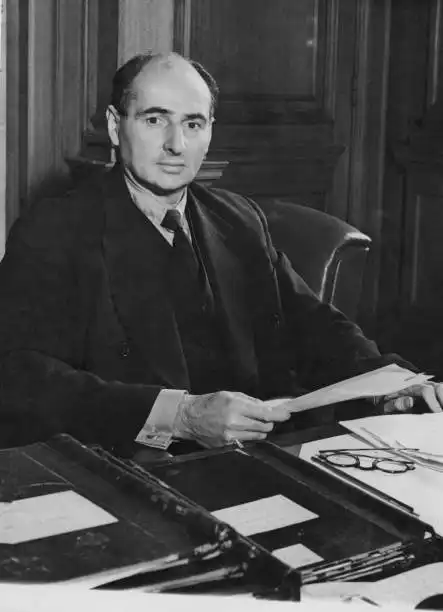
John Strachey (1901–1963), photograph
Labour politician John Strachey (1901–1963) was the son of the former editor of the Spectator. He was a prolific writer and a very influential populariser of Marxist-Leninist theories. He wrote seven books for the Left Book Club. The coming struggle for power was an exceedingly popular book that reflected a solid understanding of Marxism. Reprinted as the LBC ‘Book of the Month’ for September 1937, it provided members with a practical no-nonsense approach to communism. Strachey once claimed to have taken up communism ‘from chagrin at not getting into the Eton cricket XI’.
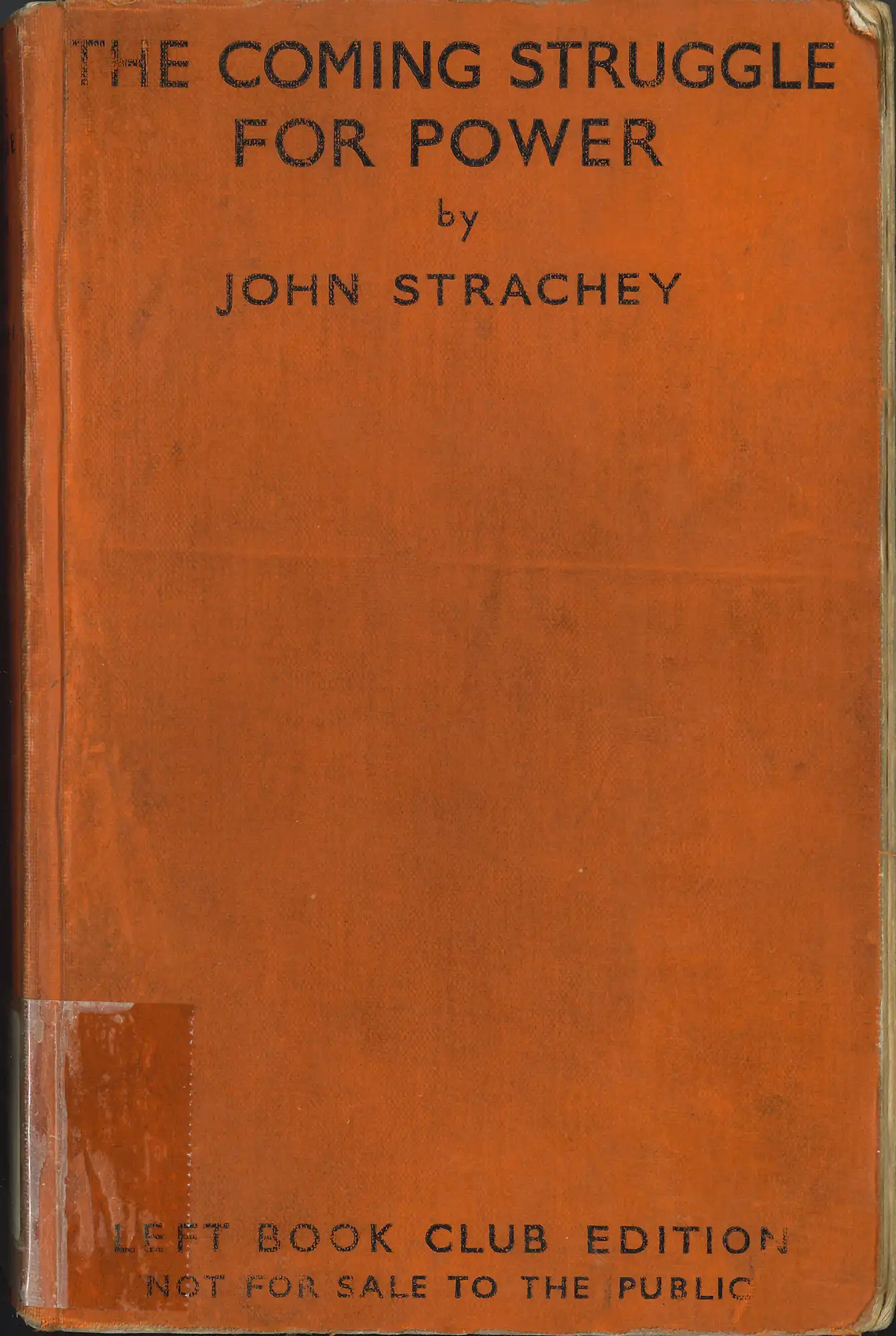
John Strachey, The coming struggle for power. (1935). LBC 330.122 STR
Labour politician John Strachey (1901–1963) was the son of the former editor of the Spectator. He was a prolific writer and a very influential populariser of Marxist-Leninist theories. He wrote seven books for the Left Book Club. The coming struggle for power was an exceedingly popular book that reflected a solid understanding of Marxism. Reprinted as the LBC ‘Book of the Month’ for September 1937, it provided members with a practical no-nonsense approach to communism. Strachey once claimed to have taken up communism ‘from chagrin at not getting into the Eton cricket XI’.
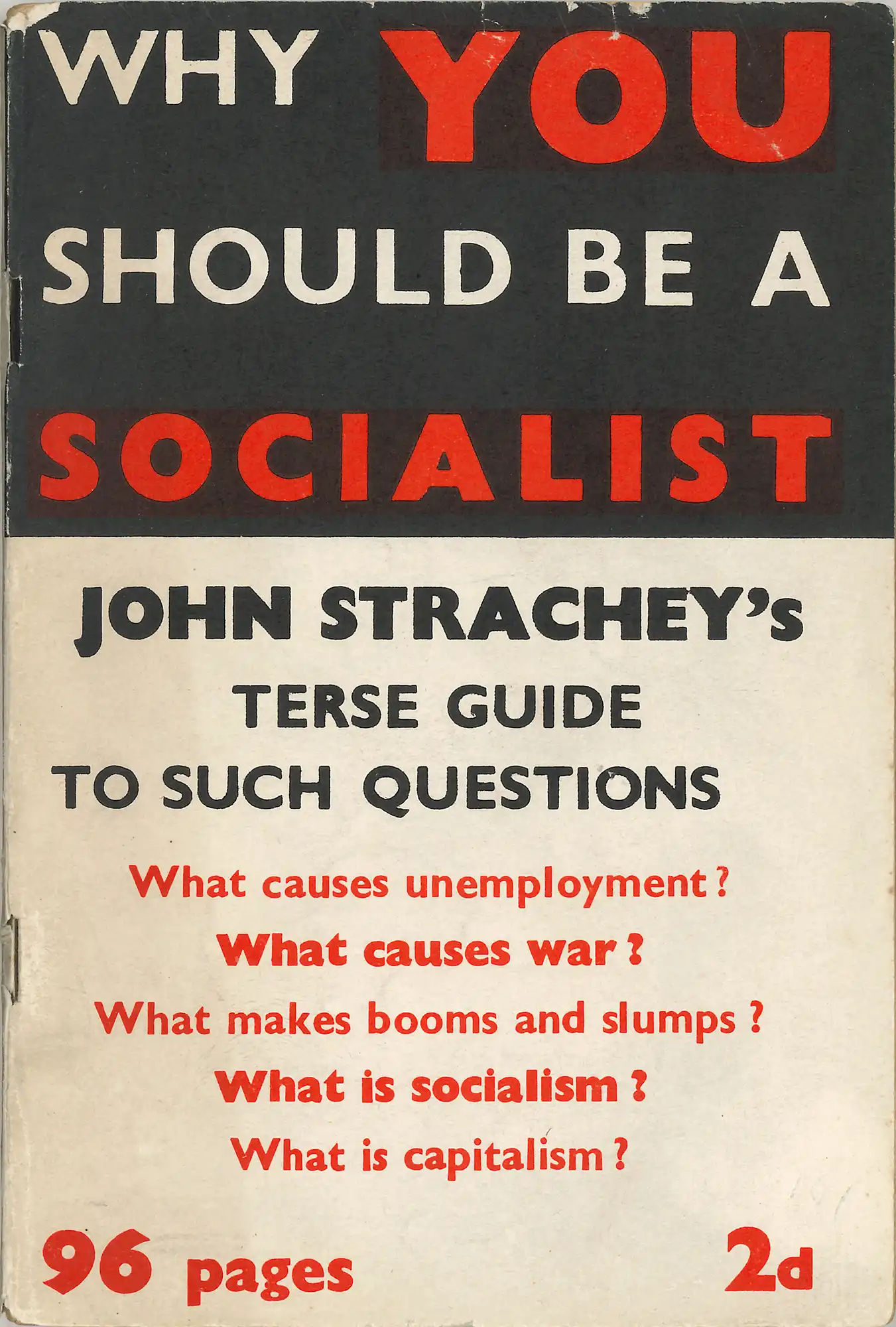
John Strachey, Why you should be a socialist. (1938). LBC 335 STR
First published on 9 May 1938, this Strachey classic, priced at two-pence and with its eye-catching cover design, sold 100,000 copies. By June it had been reprinted twice, a total print run of 200,000. One contemporary critic felt the book delivered what it had promised: ‘What causes unemployment?’ Capitalism. ‘What causes war?’ Capitalism. ‘What causes boom and slumps?’. Capitalism. And so on. The back cover contains the usual Gollancz puff: ‘If this little book has interested you why not join the Left Book Club?’
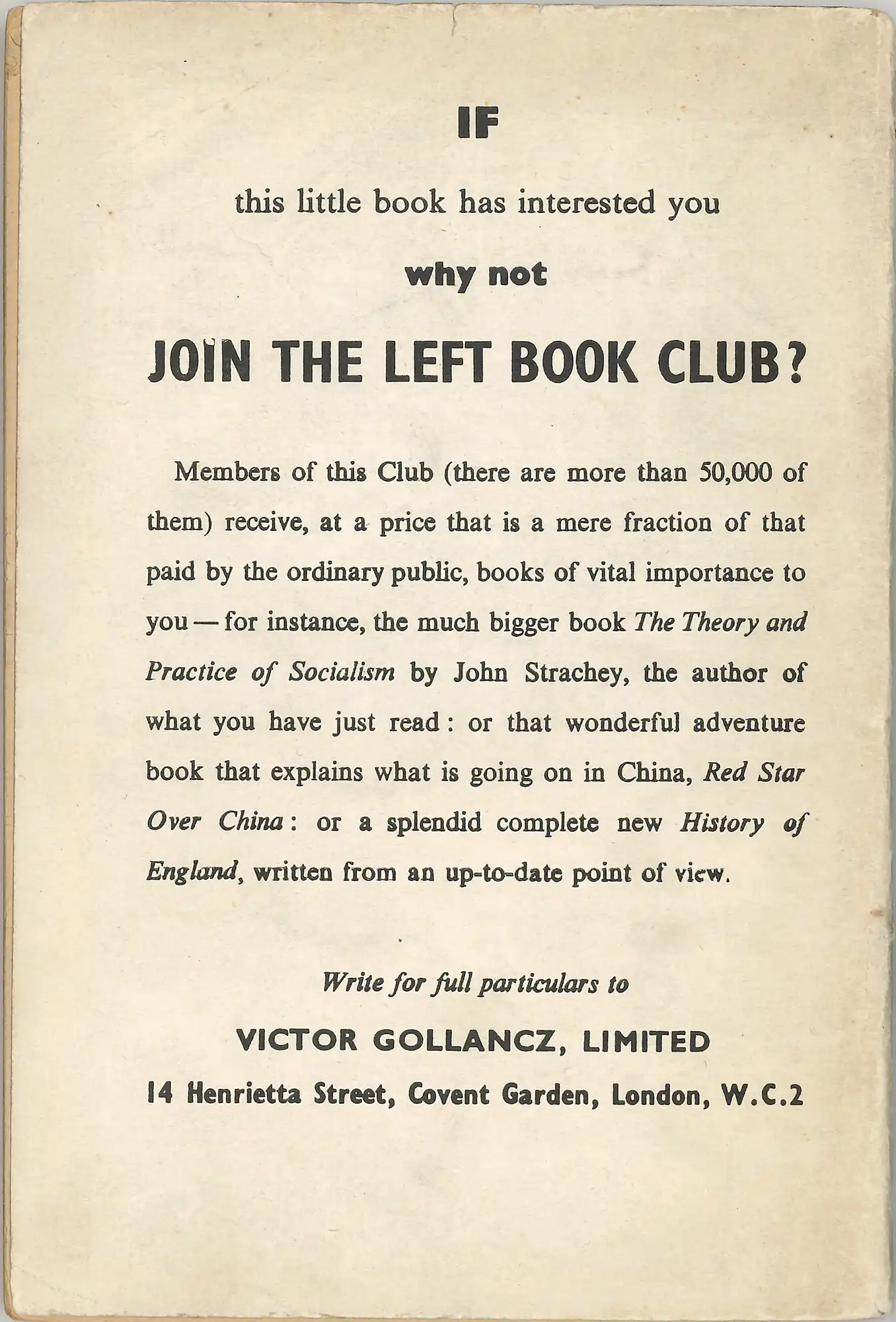
John Strachey, Why you should be a socialist. (1938). LBC 335 STR
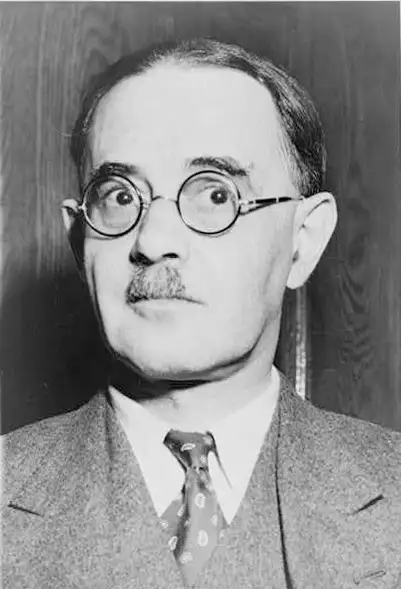
Harold Laski (1893–1950), photograph
Harold J. Laski (1893–1950) was Professor of Political Science at the London School of Economics. A Liberal with Labour sympathies, he accepted Marxist concepts to battle fascism. Laski wrote one book for the Club: Faith, reason and civilisation (1944), which were the three precepts that underpinned his life. To him faith was vital, and despite its inherent failures, he believed that the Russian Revolution contained such a germ of common faith. Orwell described Laski thus: ‘A socialist by allegiance, and a liberal by temperament’.
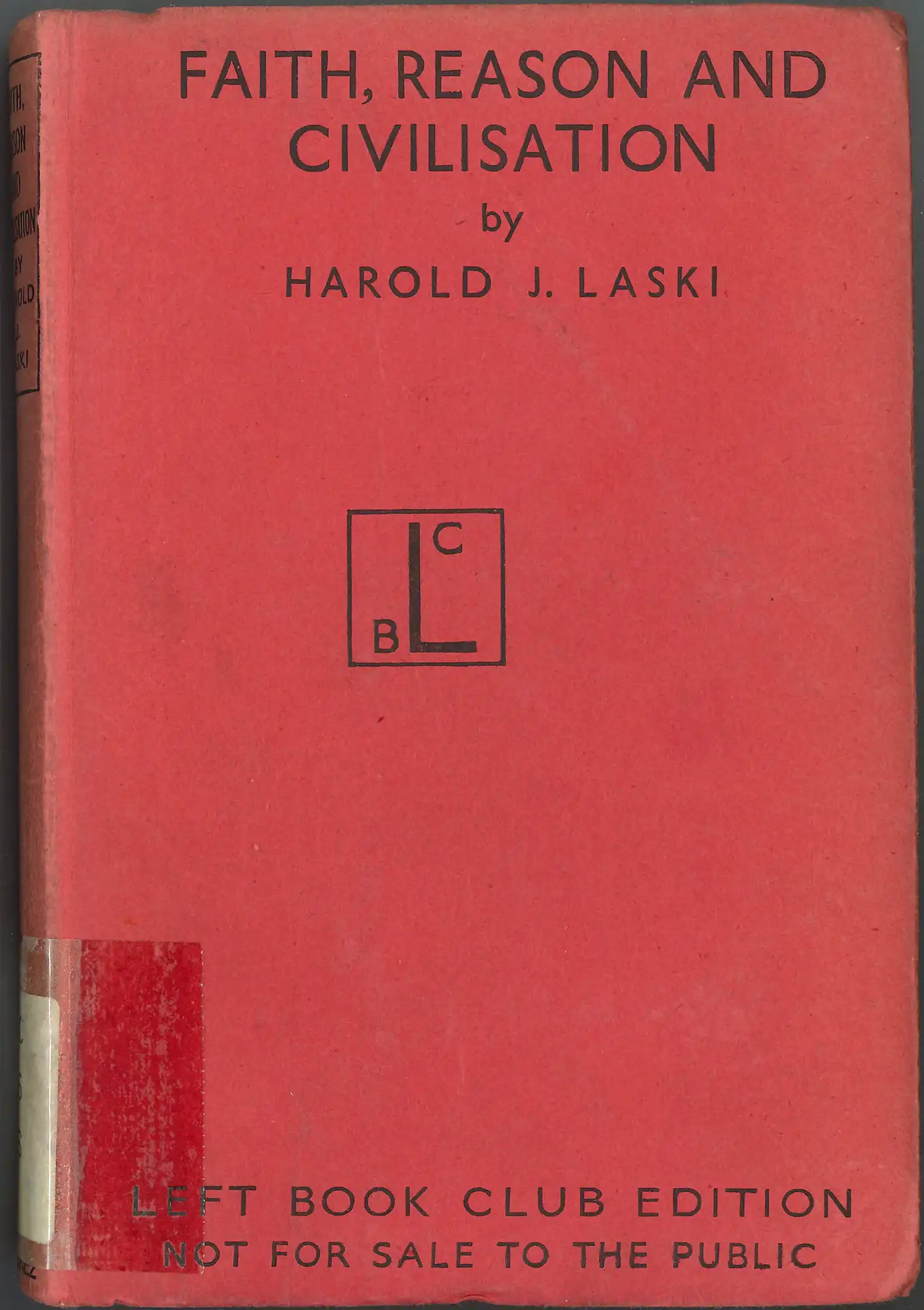
Harold J. Laski, Faith, reason and civilisation. (1944). LBC 306 LAS
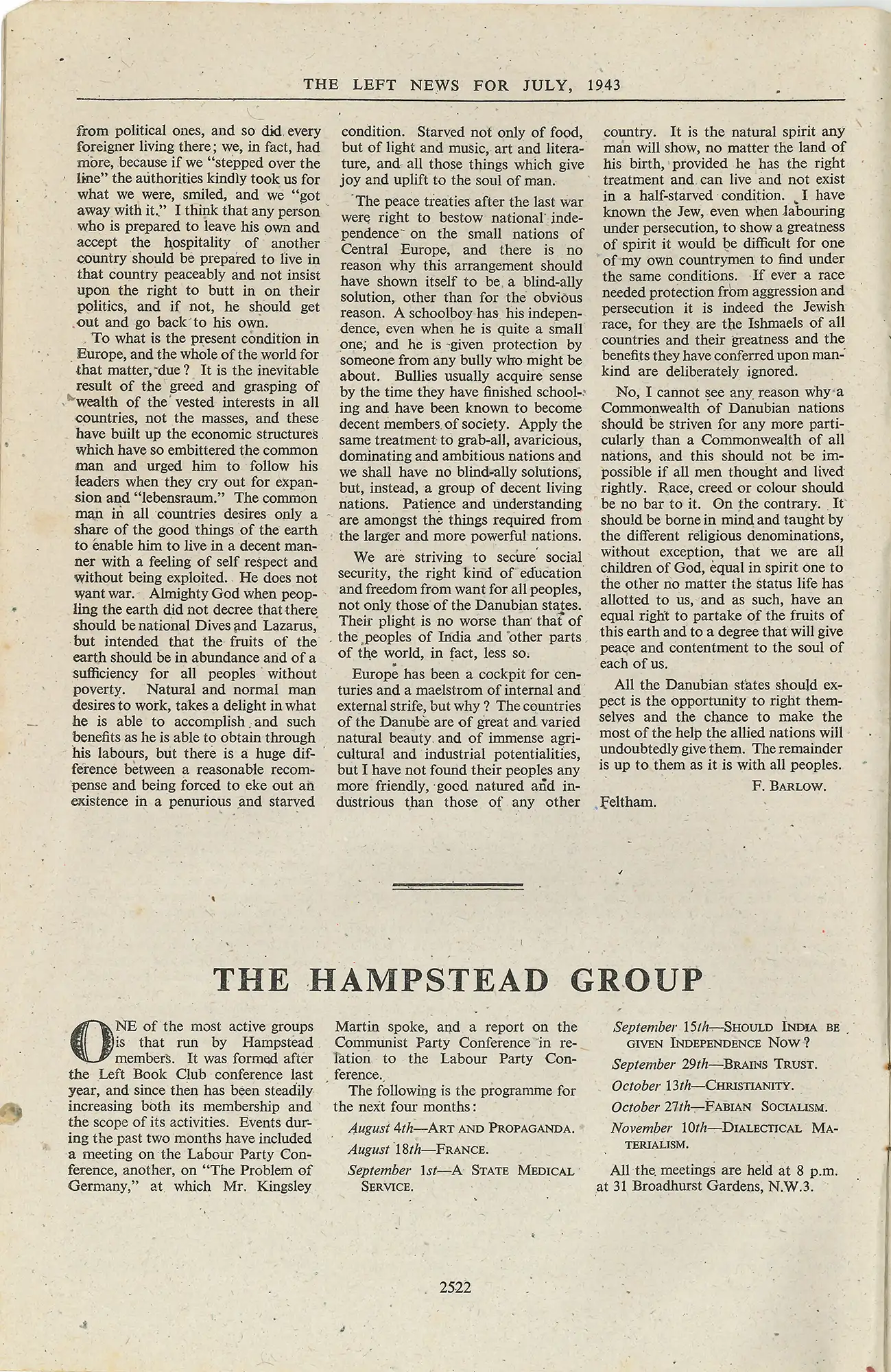
Harold J. Laski, ‘The Labour party conference and after’, The Left News, No. 85 (July 1943). Edited by Victor Gollancz. LBC 335 LEF
The ‘Three Musketeers’ – Strachey, Laski and Gollancz – worked tirelessly to fill the pages of The Left News, the LBC’s main vehicle for promotion and providing members with up-to-date information on Left wing and socialist happenings. Laski penned the lead article in this issue for July 1943, reporting that the recent Labour Party conference was ‘incoherent’ and debates held ‘ragged’. There were, however, positives such as the activities initiated by the Hampstead Group, one of over 250 LBC discussion groups formed across the UK by 1937. One wonders how many members turned up for the lecture on ‘Dialectal Materialism’ on 10 November.

Harold J. Laski, ‘The Labour party conference and after’, The Left News, No. 85 (July 1943). Edited by Victor Gollancz. LBC 335 LEF
Open image in new window
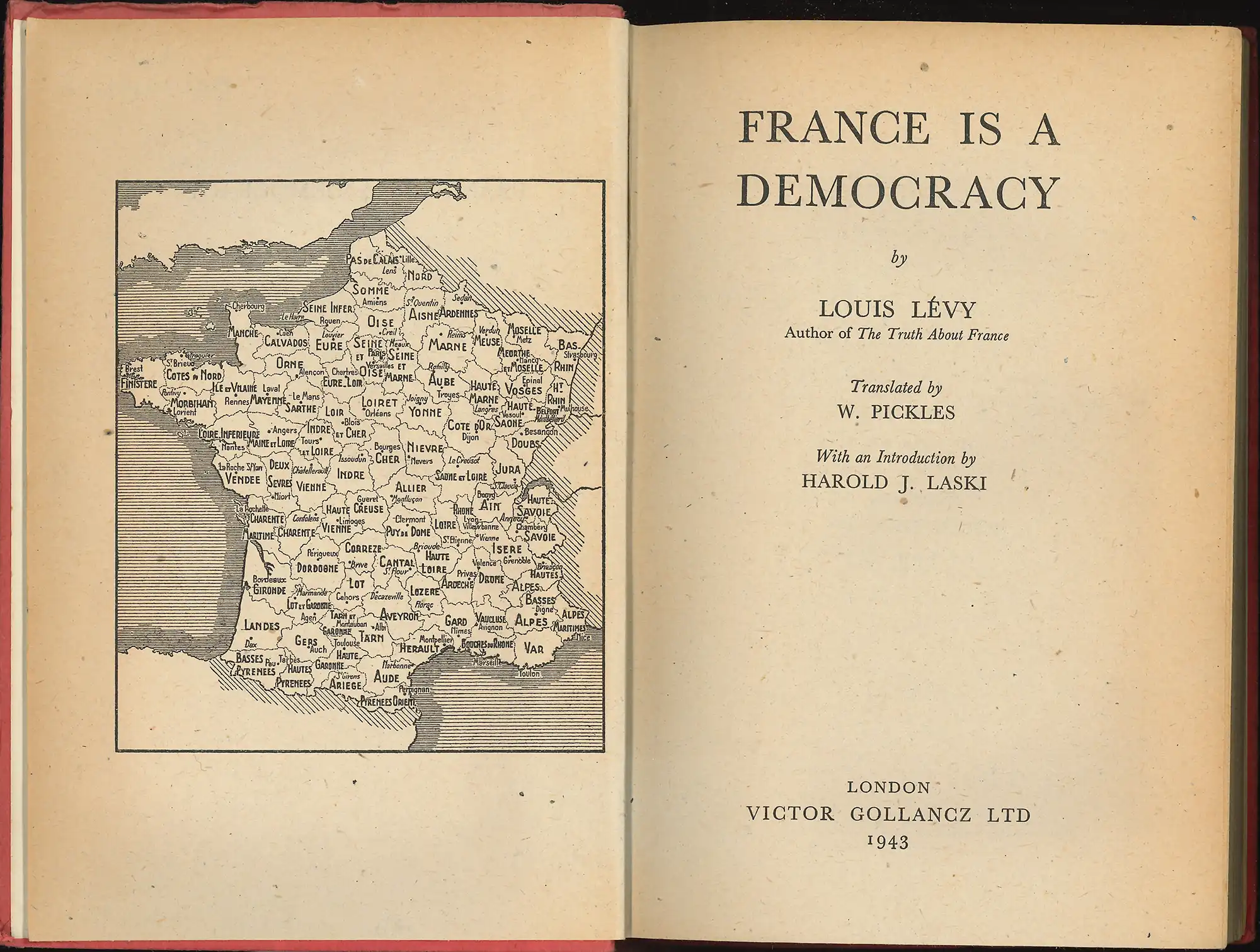
Louis Lévy, France is a democracy. (1943). LBC 320.944 LEV
Louis Lévy (1895-1952) was a French socialist who followed up his classic The truth about France (Penguin, 1941) with France is a democracy, a history on the democratic movements in France from 1815 onwards. Translated by W. Pickles, it carries an introduction by Laski, who not only praises Lévy’s scholarly approach, but also the French nation, which he called ‘very great’. There were two LBC versions: the usual limp orange-covered edition, and a ‘red’ hardback printing, classified as the ‘Book of the Month’ for August 1943.







